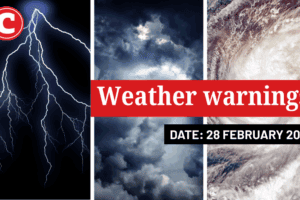Scientists at Japan's space agency have discovered a huge moon cave that could one day house a base that would shelter astronauts from dangerous radiation and wild temperature swings, officials said Thursday.

Data taken from Japan’s SELENE lunar orbiter has confirmed the existence of the 50 kilometre (31 miles) long and 100 metre wide cavern that is believed to be lava tube created by volcanic activity about 3.5 billion years ago.
The major finding was published this week in US science magazine Geophysical Research Letters.
“We’ve known about these locations that were thought to be lava tubes…but their existence has not been confirmed until now,” Junichi Haruyama, a researcher at the Japan Aerospace Exploration Agency, told AFP on Thursday.
The underground tunnel, located under an area called the Marius Hills, would help protect astronauts from huge swings in temperature and damaging radiation that they would be exposed to on the moon’s surface, he added.
“We haven’t actually seen the inside of the cave itself so there are high hopes that exploring it will offer more details,” Haruyama said.
The announcement comes after Japan in June revealed ambitious plans to put an astronaut on the Moon around 2030.
That was the first time the agency had said it aimed to send an astronaut beyond the International Space Station.
The idea is to first join a NASA-led mission in 2025 to build a space station in the moon’s orbit, as part of a longer-term effort by NASA to reach Mars.
The US also announced the country is committed to send astronauts to the moon.
“We will return American astronauts to the moon, not only to leave behind footprints and flags, but to build the foundations we need to send Americans to Mars and beyond,” US Vice President Mike Pence said this month.
China and India are also developing their space programmes.
In November, China’s Shenzhou-11 spacecraft returned to Earth, bringing home two astronauts from the rising power’s longest-ever orbital mission.
Beijing has also unveiled illustrations of a Mars probe and rover it aims to send to the Red Planet at the end of the decade.
NASA and other global space agencies are working hard on sending astronauts to Mars by the 2030s.
Support Local Journalism
Add The Citizen as a Preferred Source on Google and follow us on Google News to see more of our trusted reporting in Google News and Top Stories.






